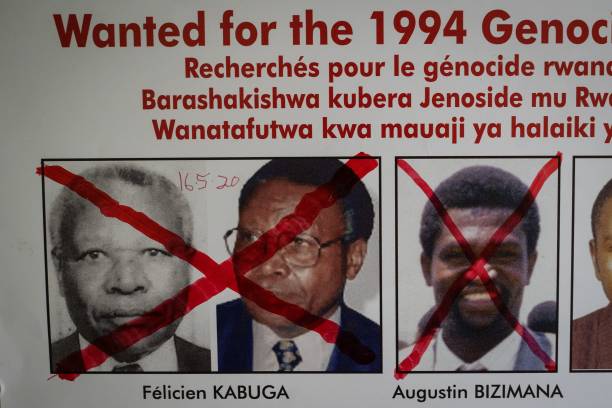This commentary comes from Hub member Leigh Swigart.
The world of international criminal justice was recently rocked by the arrest of longtime fugitive-from-justice Félicien Kabuga, charged by the International Criminal Tribunal for Rwanda (ICTR) with multiple counts of genocide and crimes against humanity allegedly committed during the 1994 Rwandan genocide. Kabuga was a prominent Rwandan businessman whose financial contributions bankrolled the genocide. He was also founder of Radio Télévision Libre des Mille Collines, a station which the ICTR determined through its famous “Media case” (The Prosecutor v. Ferdinand Nahimana, Jean-Bosco Barayagwiza and Hassan Ngeze) to have directly and publicly incited the commission of genocide through broadcasts that identified persons as Tutsis, provided their locations, described them as the enemy, and called for their elimination.
The Media case, along with The Prosecutor v. Tharcisse Muvunyi and The Prosecutor v. Simon Bikindi (pdf), grappled directly with complex linguistic and cultural phenomena, including the use of metaphorical terminology in the Kinyarwanda language to reference the Tutsi population and the act of killing, and the strategic “deployment” of Kinyarwanda proverbs and poetics to encourage violence. IJIN readers can explore how such phenomena manifested themselves at the ICTR and other tribunals by consulting the international criminal justice theme page of the Language, Culture and Justice Hub. The theme page features an extensive list of book-length publications, articles, oral histories and films that explore how issues of language and culture play out in situations of conflict, and then impact the transitional justice mechanisms created in their aftermath.
What comes next for Kabuga is not yet clear. The Africa Director of Human Rights Watch characterizes his arrest as “a major victory for victims and survivors of the genocide in Rwanda who have waited more than two decades to see this leading figure face justice.” Legal commentator Rashmi Raman explores what Kabuga’s arrest and ensuing trial may signal for international criminal justice generally — it could not only invite a renewed scrutiny of the mainstream Rwandan genocide narrative created by international institutions since 1994 but also test the capacities and resources of the ICTR’s successor mechanism. The Africa Report notes that Rwandans are sure to want Kabuga tried in a national court but that this is unlikely to happen for both legal and diplomatic reasons.
In a strange coincidence, the death of another ICTR fugitive, Augustin Bizimana, was confirmed just days after Kabuga’s arrest.
